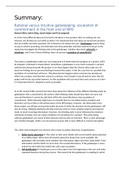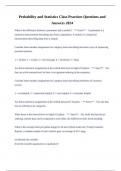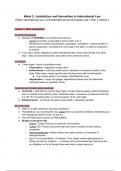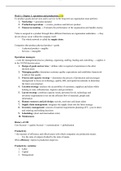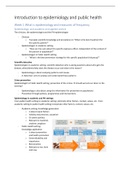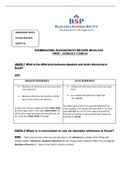language
In a world with over four hundred million native speakers of English, it is clear that the English language
is definitely changing. However, when studying this, it is important to consider the prescriptivist view of
language change as a negative force, opposed by the descriptivist stance that the English language is
always changing as a result of the dynamic nature of it. Equally, the English language can be seen as
developing not through the English- users, but instead through the societies in which the users live in
and are adapting to. Theorists such as Crystal, Shortis and McArthur all explore the theme of English as a
world language and question whether the English language is truly changing due to English-users around
the world.
The English language has always been seen to change due to the adaptation of users. For example,
during the Norman invasion in 1066, English users were forced to adapt and integrate to the French rule,
forming a new lexis consisting of a semantic field of law such as the verb ‘arrest’ as well as a new lexicon
surrounding food such as the common noun ‘mutton’ as a synonym for ‘sheep’. This introduction of new
lexemes allowed the English language to develop and become integrated the lives of the users
themselves. The process of invasion allowed the English language to grow and caused a wealth of new
forms, often due to the substratum theory and the subsequent passing down of ‘imperfections’ and
lexical differences. Evidence for this can be seen through the likes of new hybrid- languages such as
‘Singlish’, which is a creole language with English as a lexifier and lexemes from Malay, Tamil and
varieties of Chinese. These language varieties demonstrate the changing nature of the English language
as countries form endonormative stabilisation (Shneider) and are able to develop a variety of the English
language that meets the needs of the individuals within a country and acts as a ‘norm’. However, these
language forms are often perceived negatively as they are not following British Standard English, which
is viewed as the pure form which is a ‘world standard English’ ( McArthur’s Circle of World Englishes) to
which prescriptivists view that new forms of English are causing a loss of identity for the English
language. Therefore, the English language is constantly evolving as a result of diaspora and continues to
grow as English- users adapt it to their needs.
It can be argued that one of the main sources of the inevitable changes to the English language is the
growth in technology. Over centuries, technology has been a source of fear for prescriptivists ( or so –
called ‘ Prophets of doom’ by David Crystal), due to the vast effects it has on the English language. For
example, when the printing press was invented in the fifteenth century many were afraid of the
changes this would bring to language and the introduction of the telephone in the 19 th century left
people afraid that communication would no longer take place face- to – face. Since then, technology
has only ever grown, and with that the English language has developed. The increase in texting, for
instance, has brought a plethora of neologisms to the English language including the acronyms ‘LOL’ for ‘
laugh out loud’ or ‘ lots of love’ and ‘brb’ meaning ‘be right back’ . While some, such as Shortis argue
that this ‘ demonstrates creativity ‘ from the users and highlights the development of the English
language to meet the needs of the users, it has been met with a lot of criticism. Prescriptivists such as
John Humphrys believe that the English language is experiencing negative decline as a result of ‘lazy’
text language which is ‘savaging our sentences, pillaging our punctuation and raping our vocabulary’ .


